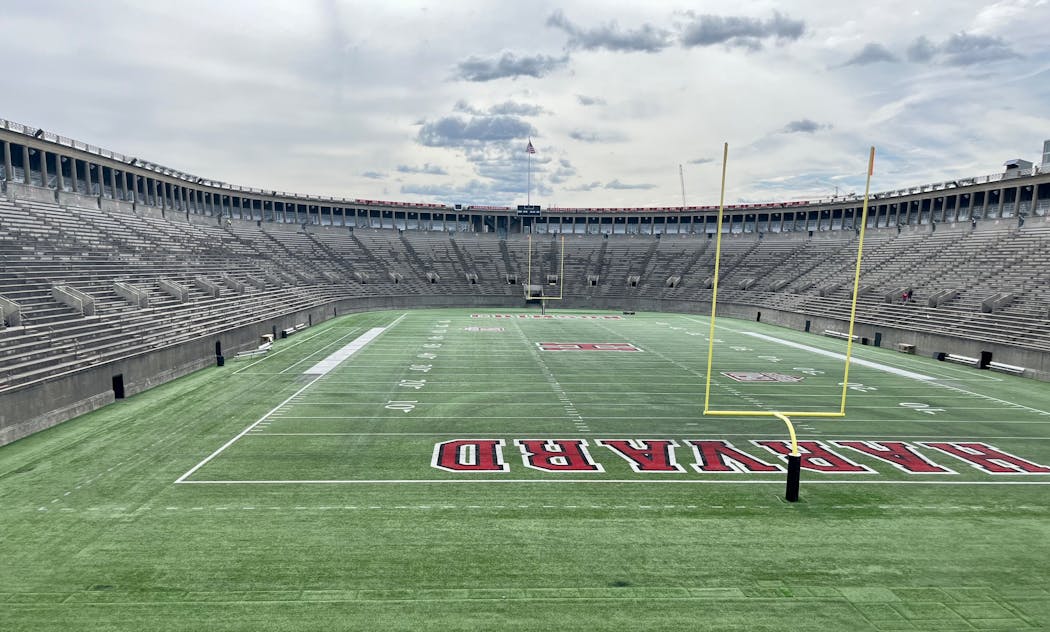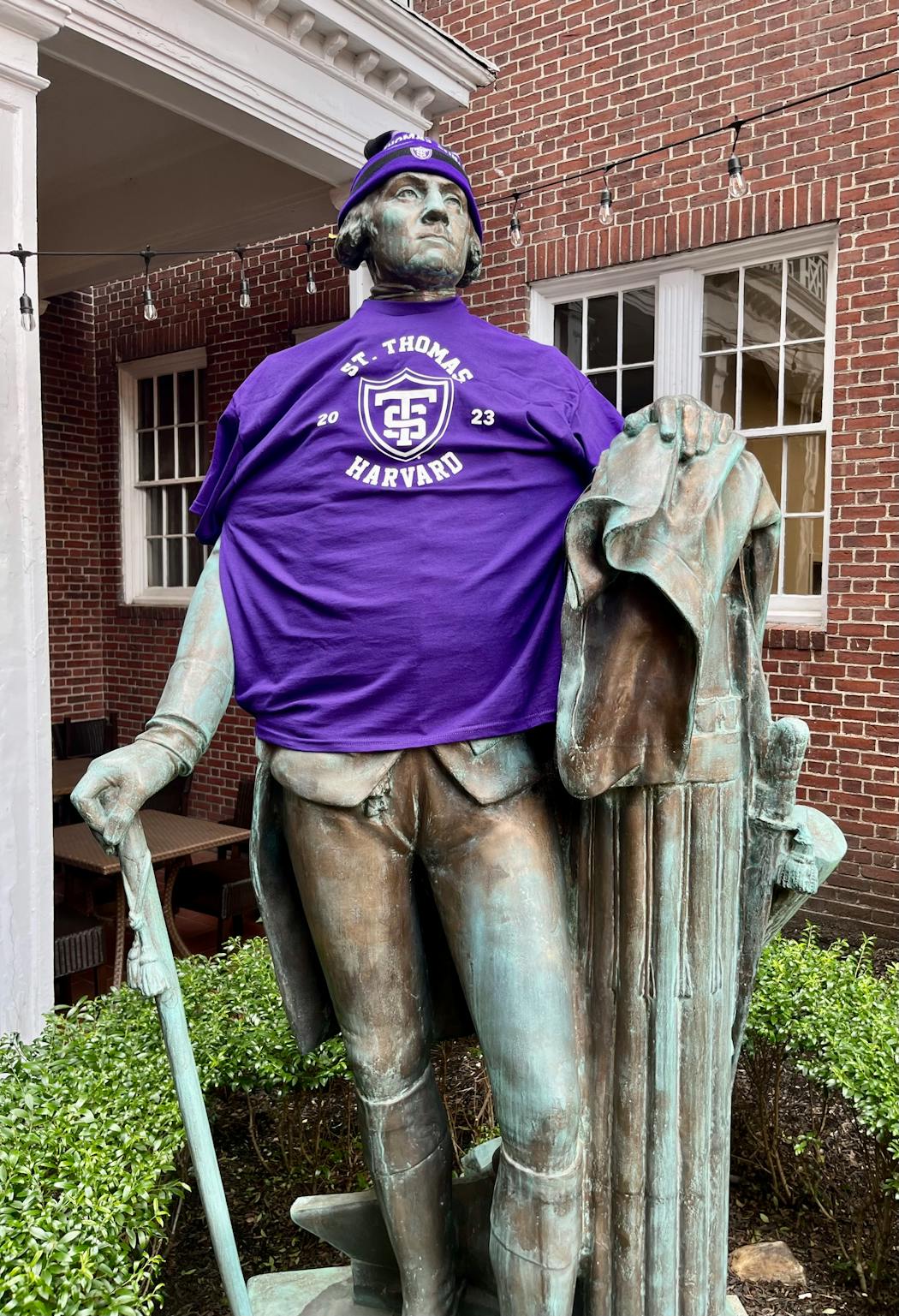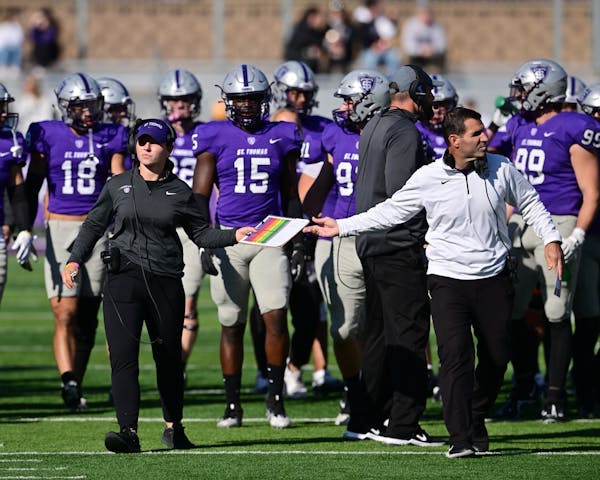CAMBRIDGE, MASS. – Frank "Bucky" Caruso was a well-known lawyer in Greenwich, Conn. There were three Caruso children when his wife Judith died. His son Glenn was the youngest at age 8.
"He was a very busy man, but also determined to stay entrenched in our lives,'' Glenn said. "So, he would pick out weekends and say to one of us, 'OK, this is your weekend. Pick the town. Pick out what you want to do … you and me.'
"For me, the choice was easy. It was almost always Boston. The history, the melting pot of people, the sports. I've considered it the most interesting city in the country.''
The activity in the Caruso home increased substantially when Frank married Mary McLaughlin and she brought four daughters along with her. They became a close-knit collection of seven kids, and the source of great pride for Frank before his death at 68 in 2005.
Glenn Caruso has had an excellent reason to reflect this week on those long-ago trips to Boston with his father, for in Year 16 of his exceptional run as the St. Thomas football coach, his Tommies will be right across the Charles River on Saturday playing Harvard in the famed U-shaped stadium that dates to 1903.
Imagine that: St. Thomas, in its third season since leaving Division III and the MIAC, playing the Harvard Crimson, titans of college football in its formative years, attached to 12 national titles from 1890 through 1920.
"I'm probably the only guy you are going to find who is a fan of both the Yankees and the Red Sox,'' Caruso said. "We lived 30 miles from Yankee Stadium and 180 miles from Fenway Park, but I saw almost as many games in Fenway.
"I'm not much of a hockey guy, but thanks to my dad, I saw games in the Beanpot Tournament. You know what that is, right? The annual tournament among Harvard, Boston College, Boston U and Northeastern.
"We always rooted for BU because that's where my dad paid his way through school as an undergrad and in graduate school. Right down the Red Line on [Commonwealth] Avenue. He lived in Myles Standish Hall as a freshman, and then was a resident adviser there.
"I've been back there a few times — to look around, to think about it being my dad's home in Boston."
A new generation of Carusos might have played a role in finalizing this agreement for the Tommies to open Harvard's season in 2023, and then to wait until 2029 to get a rematch in St. Paul.
Anna Caruso, the oldest of three Caruso children, was with her mother, Rachael, visiting colleges in the summer of 2021, before her senior year at Cretin-Derham Hall.
"Anna had a good résumé and one place they wanted to see was Harvard," Caruso said. "I called Murph to see if he was going to be around, so Rach and Anna might stop in."
Tim Murphy, now starting Year 30 as Harvard's coach, is a former president of the American Football Coaches Association and simply "Murph" to coaches at all collegiate levels.
The Ivy League schools were as hardcore about COVID-19 as any place. They played no sports from mid-March 2020 through the 2020-21 seasons.
"Murph said the admission office on campus had been shut down for two years, but he would make sure Anna and Rach were given a tour of the campus," Caruso said. "Sarah Parady, Murph's administrative coordinator, showed them around. She was fantastic, and she's also the daughter of Jim Parady, the head coach of Marist in our [Pioneer] league.
"We had been trying to get this Harvard game on the schedule for a year, and not long after Anna and Rach were there, Murph said, 'OK, we'll sign the paperwork for these games.'
"I don't think it was a coincidence."
As for college, Anna wound up at St. Thomas, where she has done some analytical work for her father's football program. Although, good luck trying to analyze what Murphy and the Crimson might bring to Saturday's game — at least on offense.
"Their top two quarterbacks are gone, their number one running back and their number one receiver are gone," Caruso said. "It's Harvard's opener, so it's hard to scout when you don't know who will be playing."
The Ivy League is officially FCS, but it does not do playoffs. The eight teams play a 10-game schedule, period. Once athletes are eligible to compete in the Ivy, they have four years — that's it, no redshirts.
And with COVID, only seniors were given the pandemic year that other colleges have used to help keep athletes for five, six or even seven years.
"I remember Murph's speech at the coaches convention almost 15 years ago — that the purity of competition in college football was under serious question," Caruso said. "I'd say he was right about that.
"The Ivy League is probably the last great example of purity. And for the restrictions they place on themselves, the Ivy plays a very good brand of football."
Caruso paused and then said: "No matter what happens Saturday, I'd love it if it could become routine for us to schedule Ivy League teams. Heck, playing two Ivies a year would be terrific."
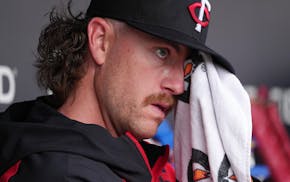
Reusse: Once-formidable Twins starting rotation vulnerable without López
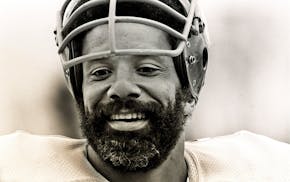
Reusse: Country boy Jim Marshall never lost his lust for life
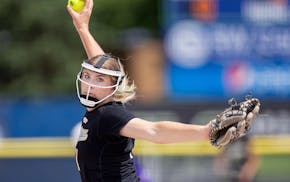
Reusse: As Caswell Park does itself proud, a hometown team runs hard into a challenge
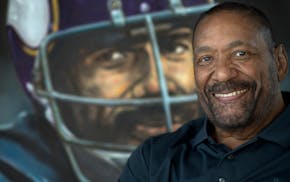
Reusse: Jim Marshall belonged to us, and Minnesota loved him for it


